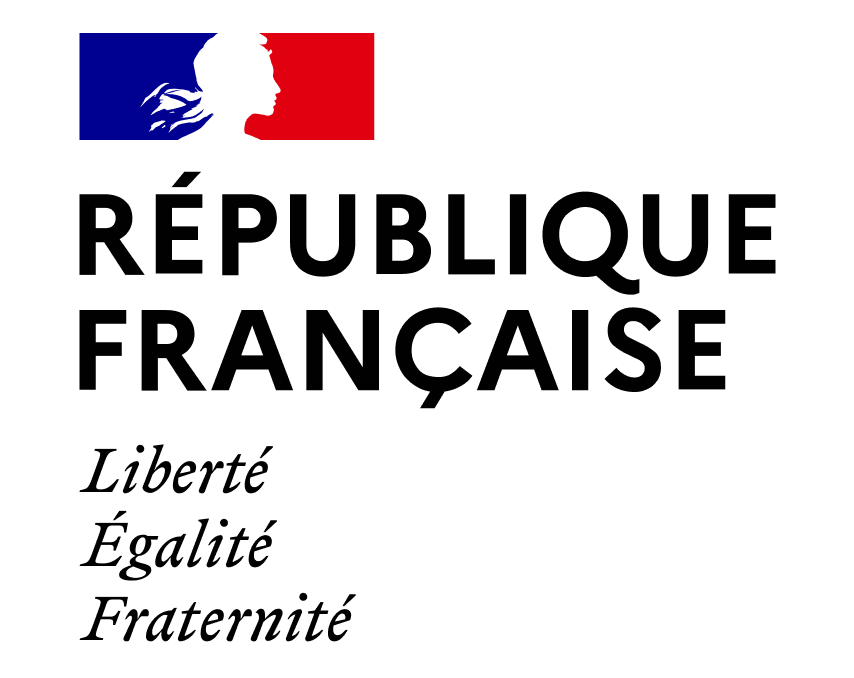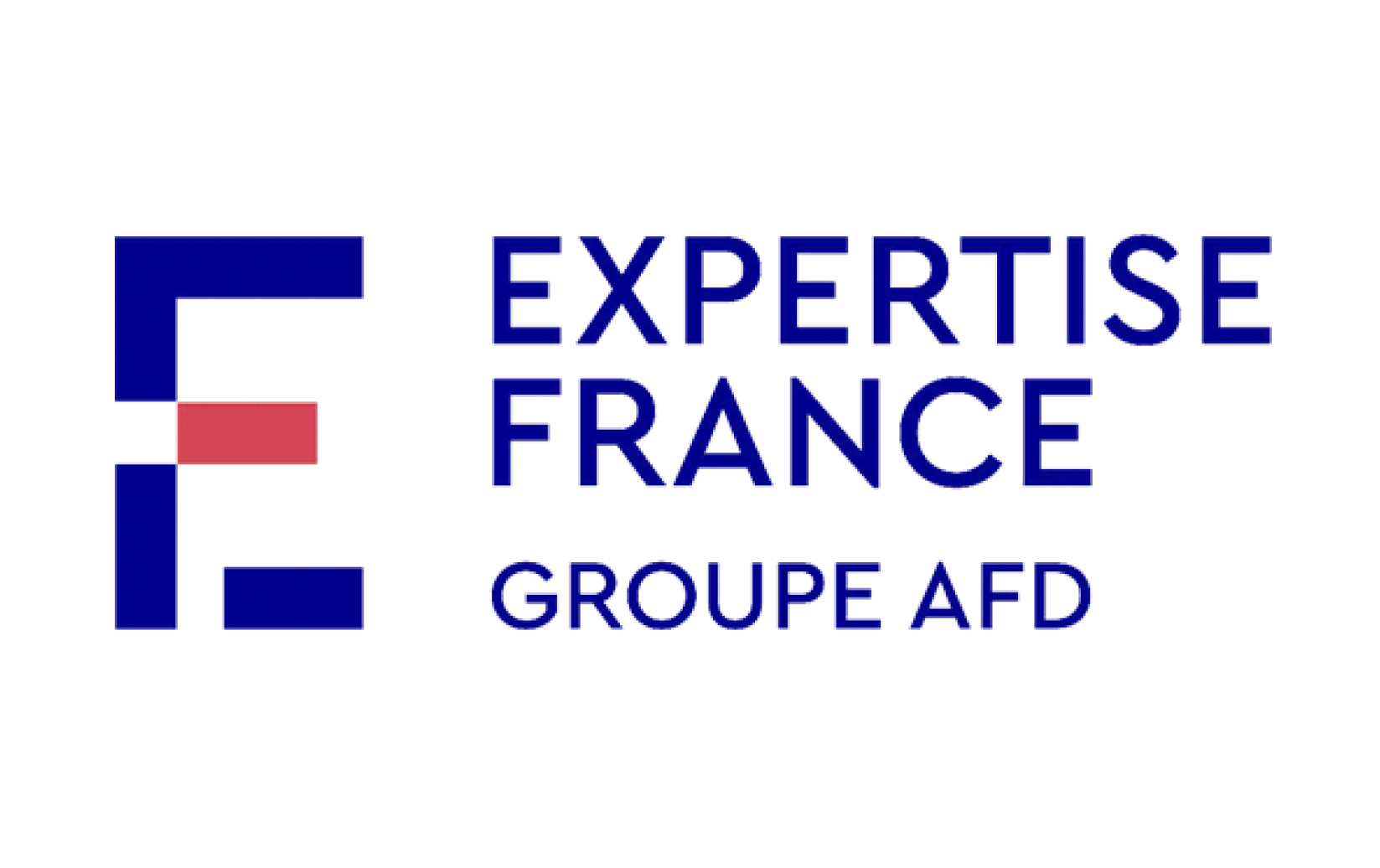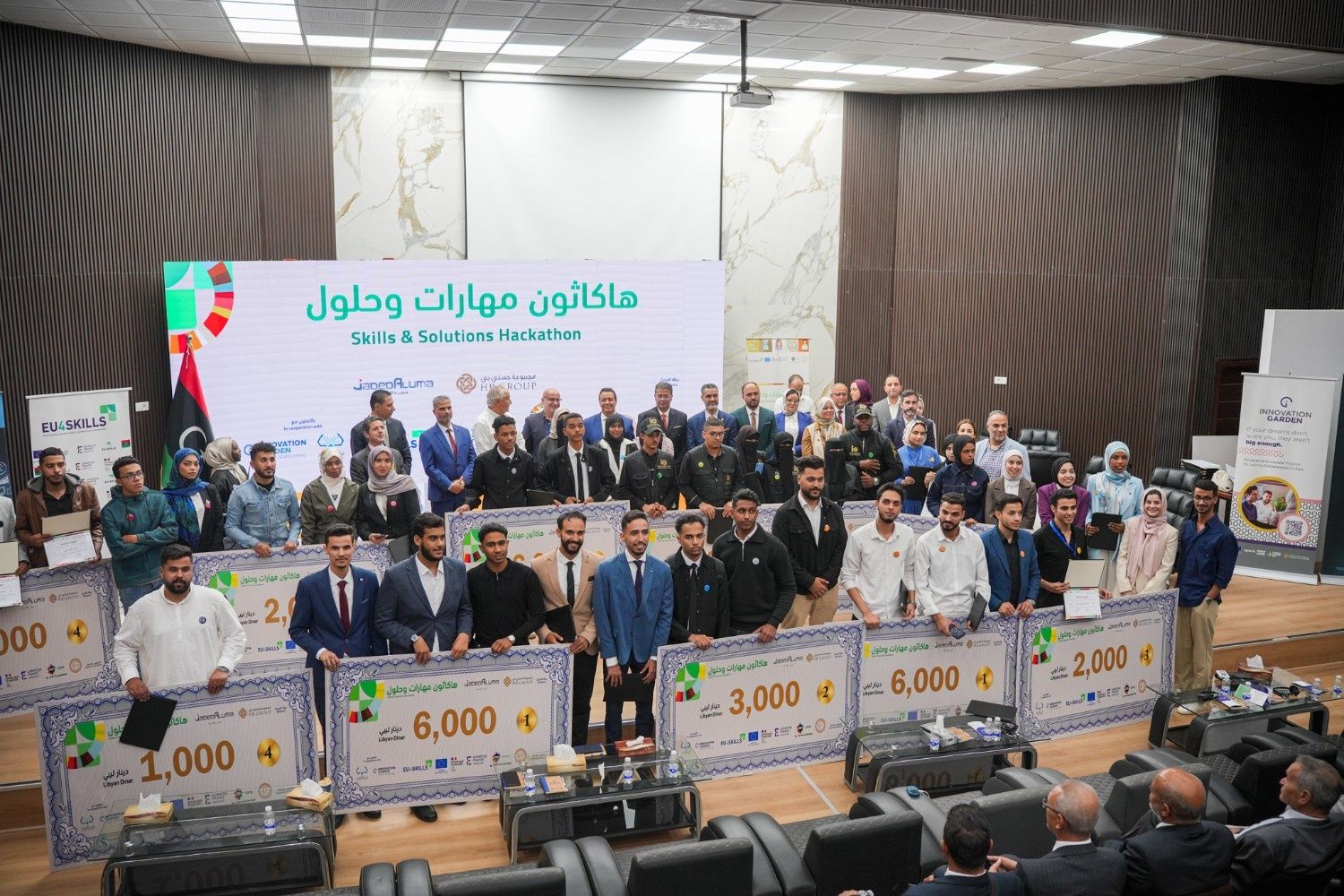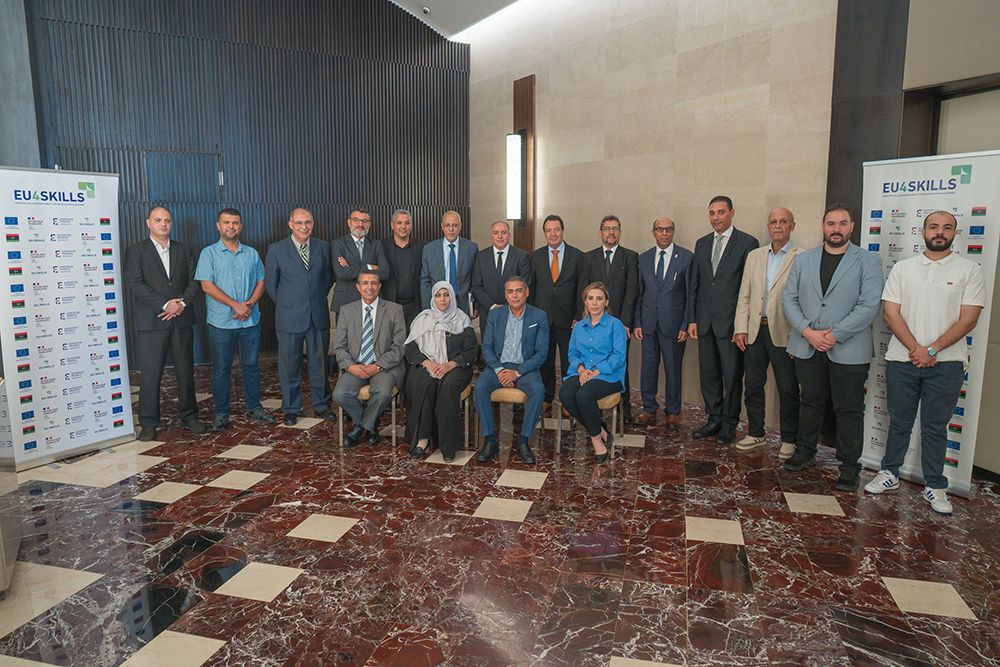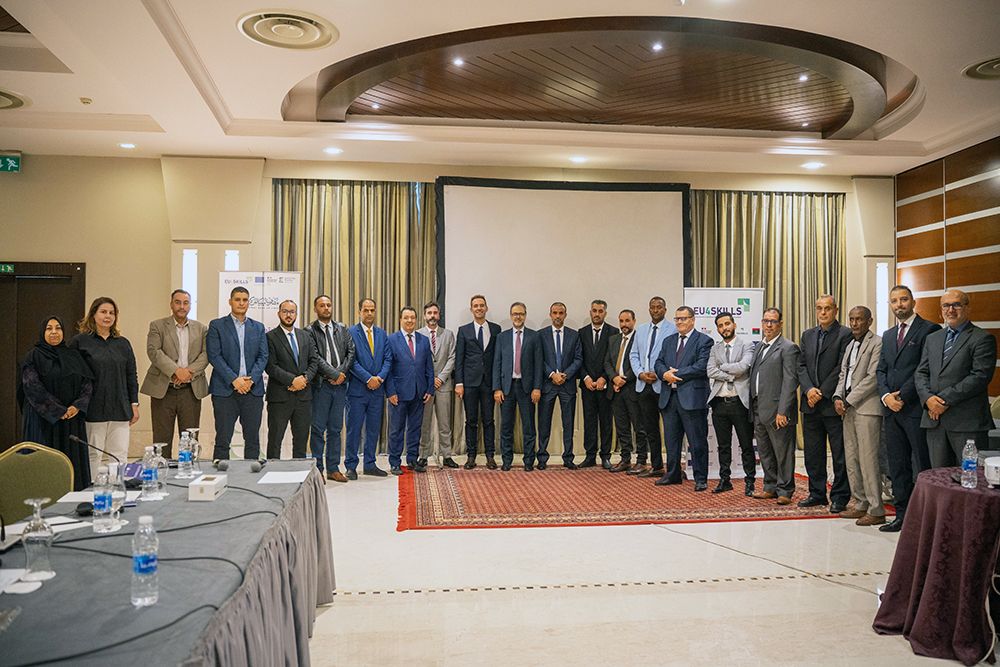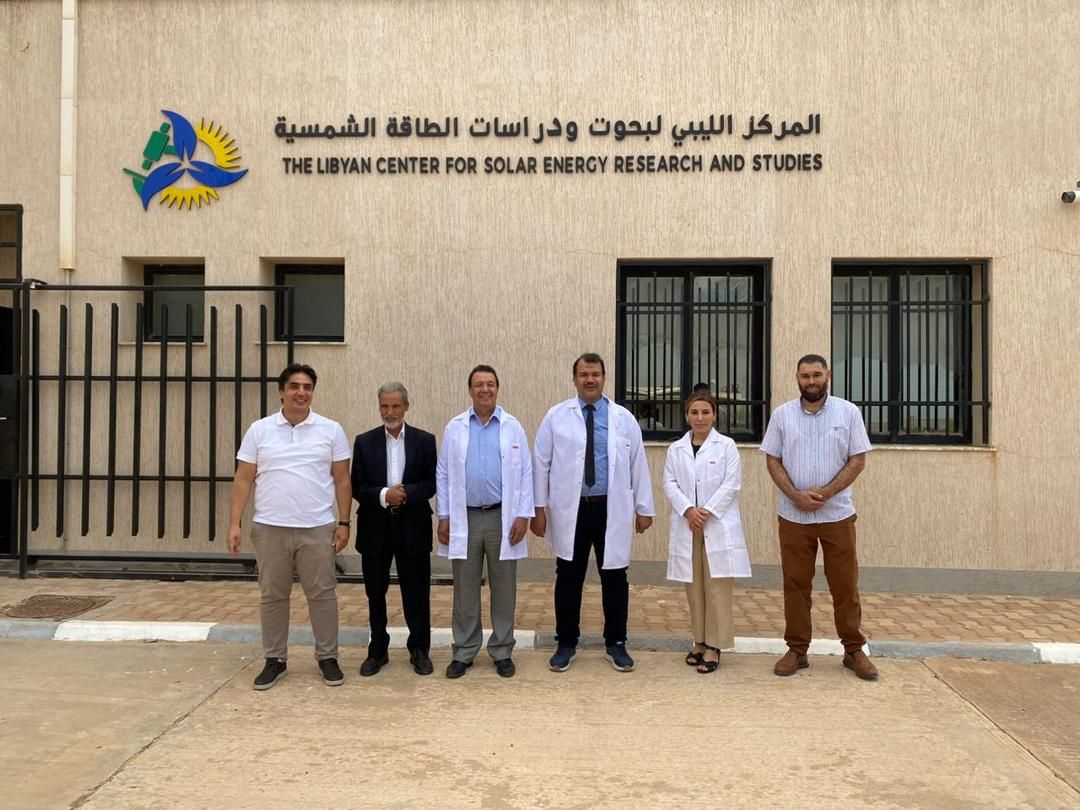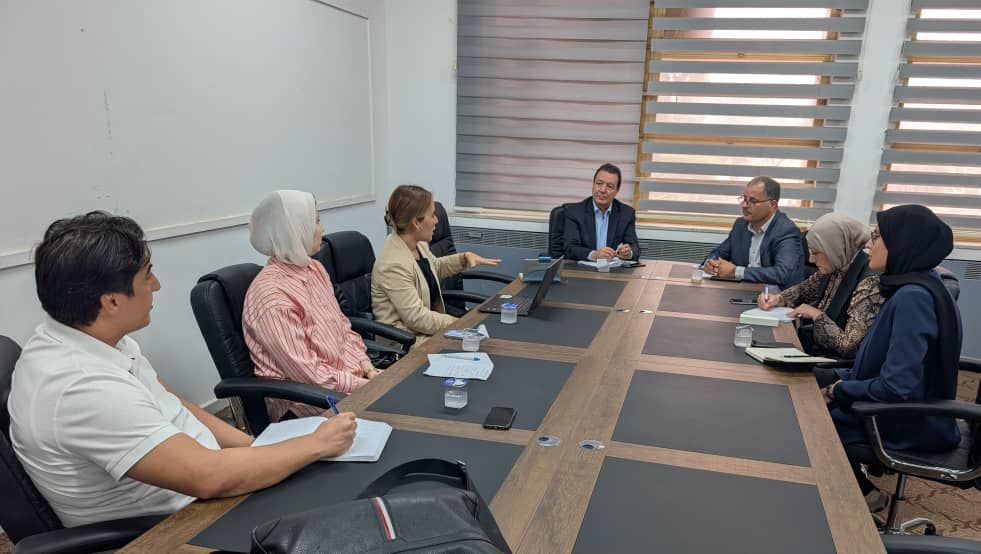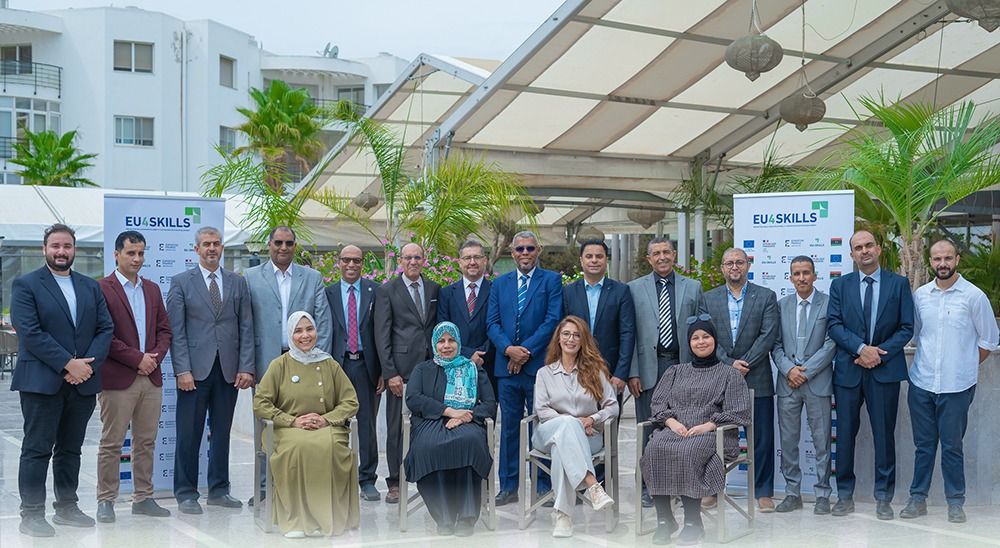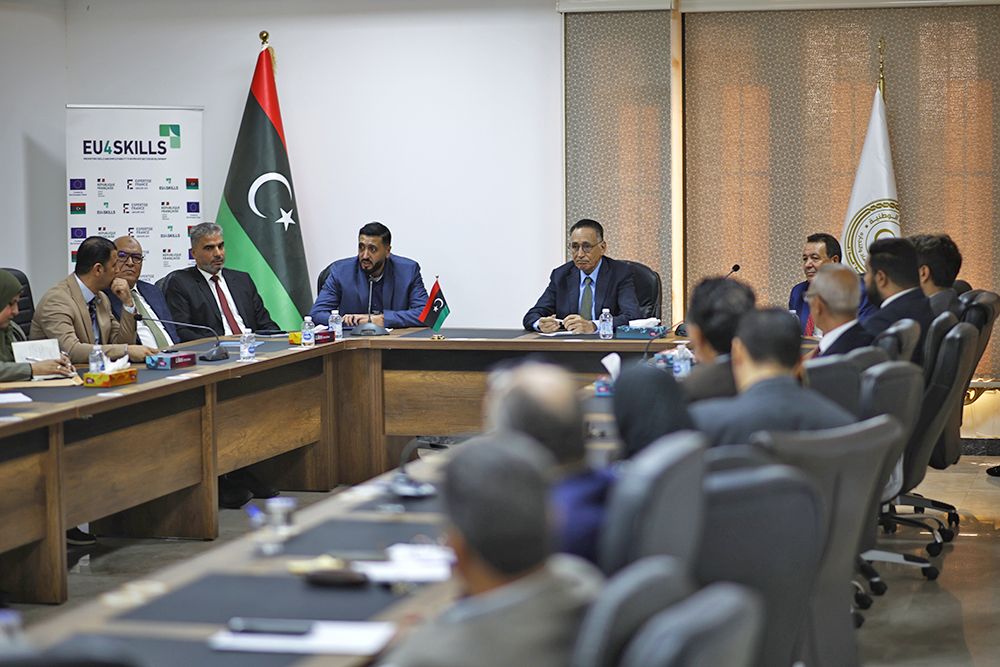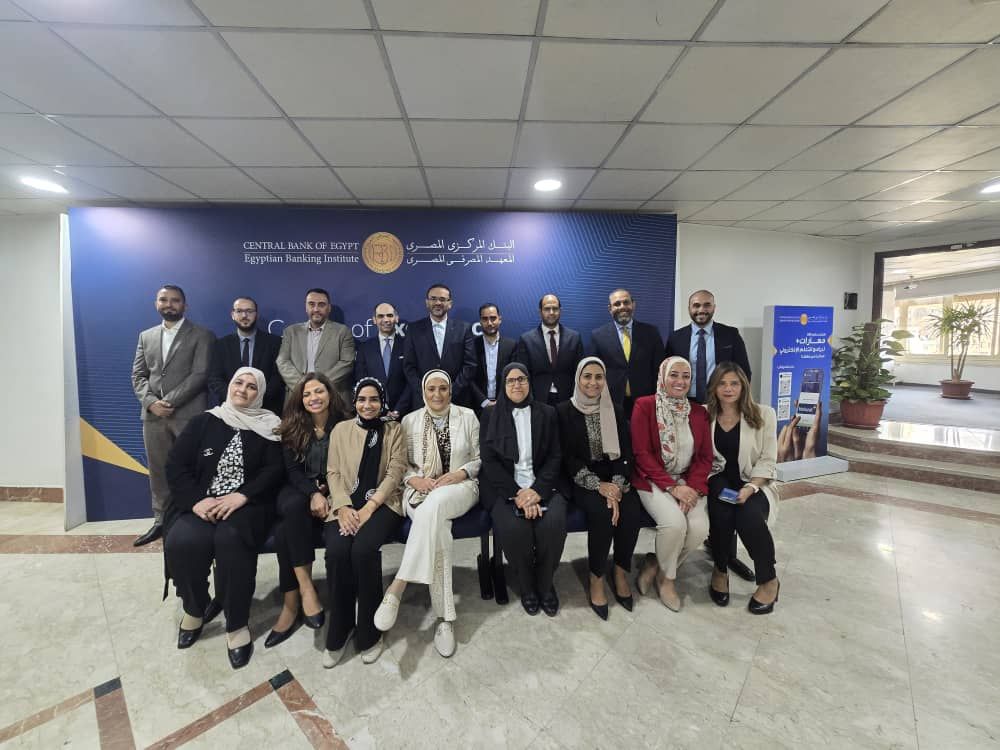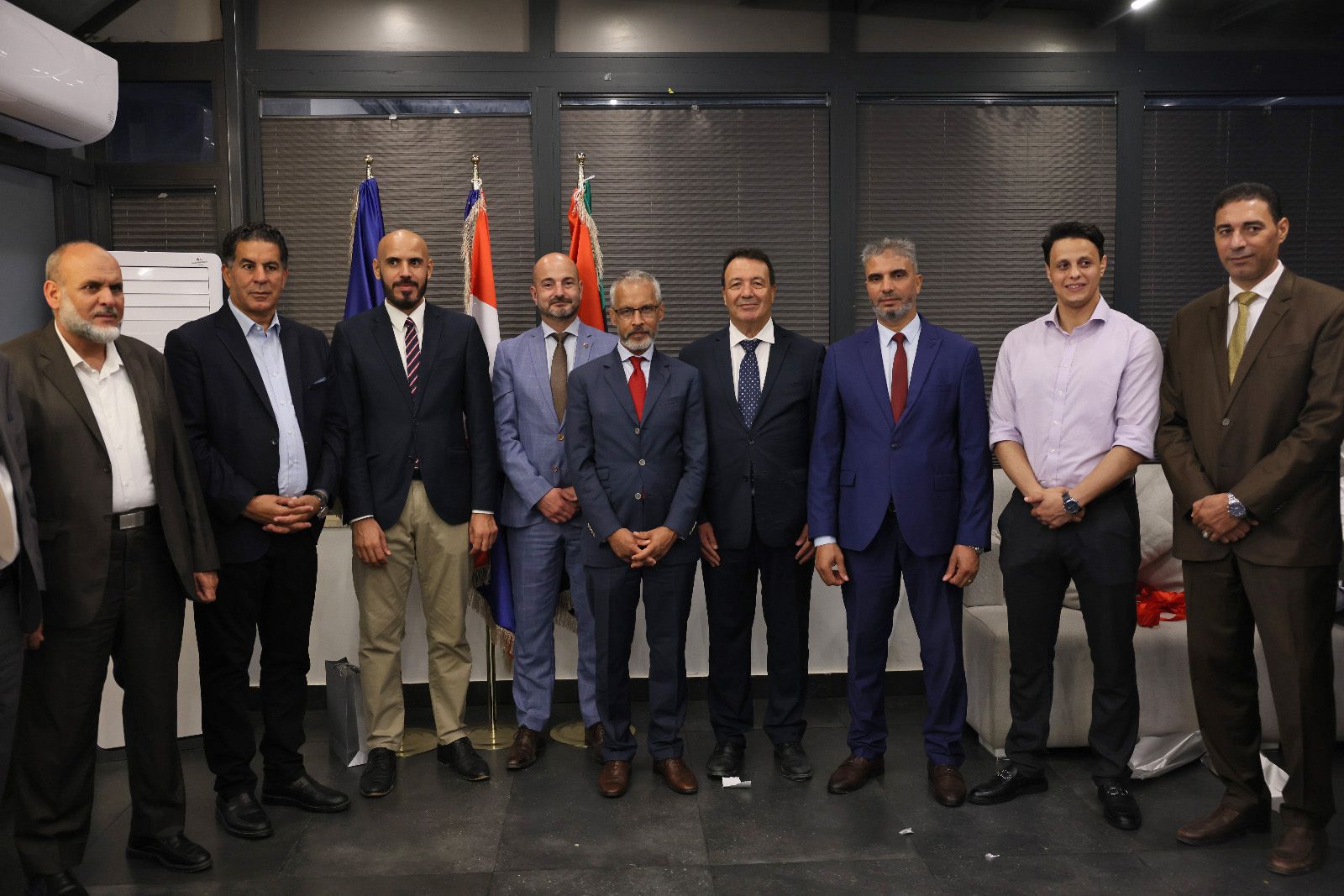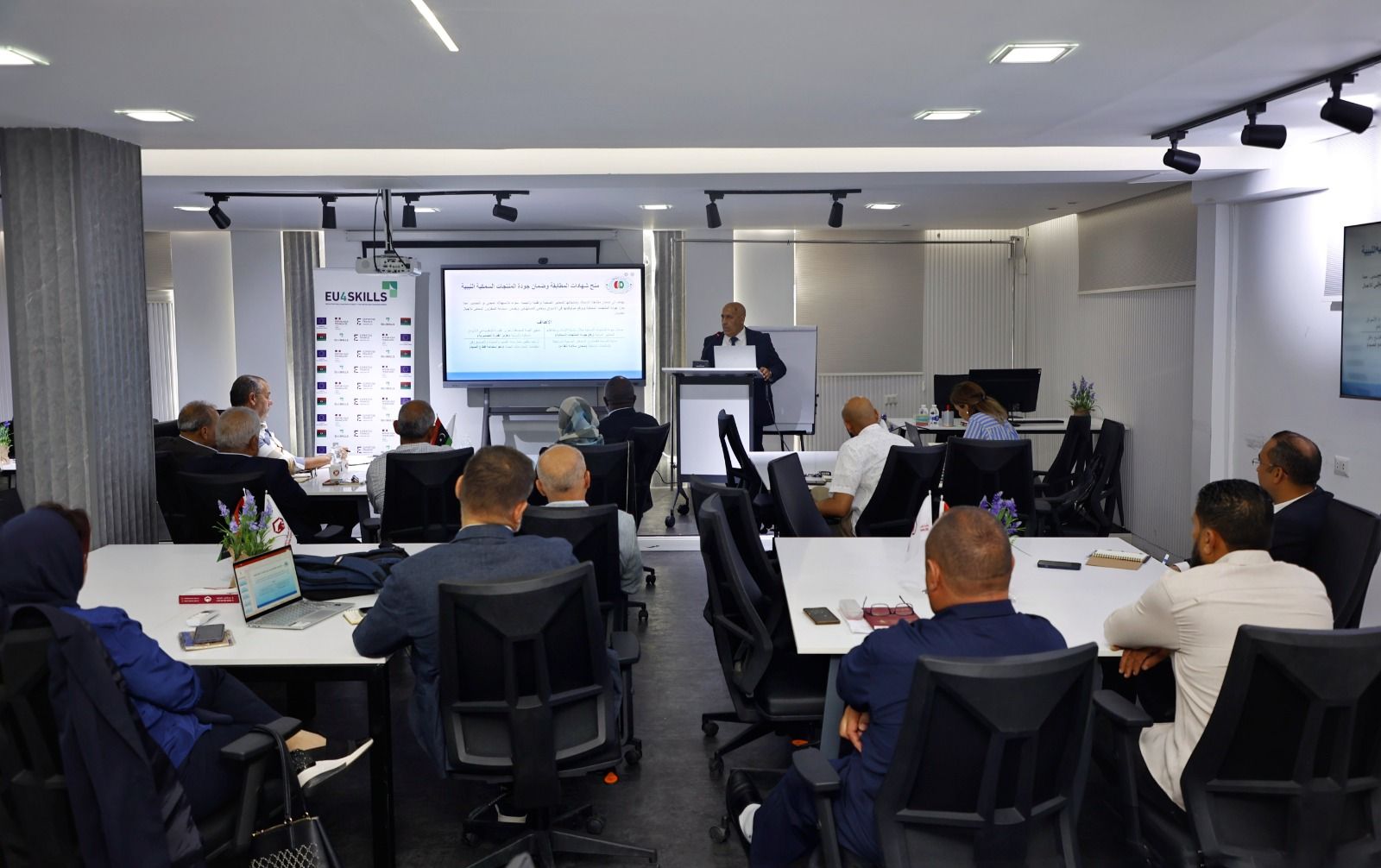Celebrating Innovation at the final ceremony of the Skills & Solutions Hackathon
After days of preparation and planning, the long-awaited day arrived: a day of competition, presentations, and celebrating the efforts of the participating teams from across Libya, all striving for the top ranks in the Skills & Solutions Hackathon.
The participating teams and their innovative ideas shined during the closing ceremony hosted by the University of Tripoli, in the presence of high-level representatives from public and private institutions, along with a delegation from the European Union and the French Embassy.
The ceremony opened with speeches emphasizing the importance of such events in promoting innovation and entrepreneurship, and in supporting impactful community-driven solutions that contribute to Libya’s economic development. The opening remarks were delivered by Dr. Khaled Ghouma, Vice President of the University of Tripoli for Academic Affairs, followed by H.E. Mr. Mohamed Al-Hweij, Minister of Economy and Trade.
Valuable remarks were also delivered by Mr. Mohamed Suweed, Senior Advisor at the Libyan Ministry of Foreign Affairs; and Mr. Marton Benedek, Head of Cooperation at the EU Delegation, who were accompanied by Mr. Stergios Tragoudas, Program Manager for Private Sector Support and Higher Education at the EU Delegation in Libya.
A motivating speech was then delivered by Mr. Jean-Pierre Bat, Chargé d’Affaires at the Embassy of France in Libya, who attended alongside Mr. Frédéric Vincent, Cultural Cooperation Attaché at the Embassy.
Further remarks were shared by Mr. Maxime Bost, Program Director at Expertise France, and H.E. Mr. Saleh Al-Ghoul, Deputy Minister of Education and Scientific Research, closing the speeches with a message that reflected strong collaboration and international support for innovation in Libya.
After the judging committee, composed of leading experts and specialists, reviewed the projects based on creativity, impact, and feasibility, the winning teams were announced and honored. Universities with the highest number of participating teams were also recognized. The event concluded on an inspiring note with remarks from Mr. Husni Bey, CEO of HB Group and one of the event sponsors; H.E. Mr. Nouri Al-Gattati, Deputy Minister of Economy and Trade; Mr. Ali Nasser, Director of the Libyan Union of Industries; and Mr. Mohamed Ahmed Al-Aswad, Deputy Program Director at Expertise France.
This hackathon is part of the activities of the EU4SKILLS project, funded by the European Union and co-funded by the French Government. The project is carried out by Expertise France to enhance skills and improve employment opportunities in Libya.
